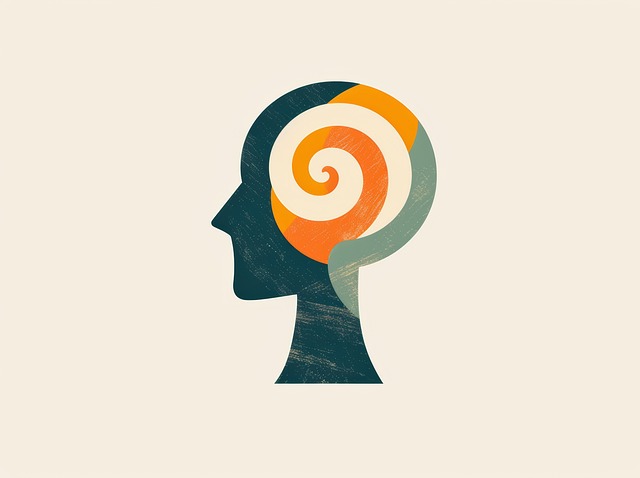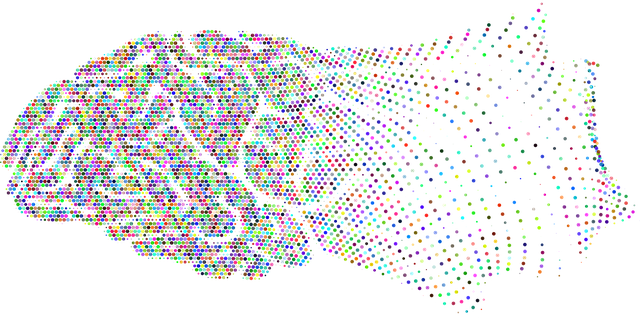Mental illness representation in media significantly influences societal perceptions about mental health. This article delves into the profound impact of media portrayals on how we view and understand mental well-being, focusing specifically on eating disorders among youth. We examine the current state of media misrepresentations and offer effective strategies to drive positive change and awareness. Additionally, we explore education and training for media professionals, as well as successful therapeutic interventions for young children struggling with eating disorders.
- Understanding the Impact of Media Portrayal on Mental Health Perception
- The Current State: How Media Often Misrepresents Eating Disorders in Youth
- Effective Strategies to Promote Positive Change and Awareness
- The Role of Education and Training for Media Professionals
- Success Stories: Therapeutic Interventions for Young Children with Eating Disorders
Understanding the Impact of Media Portrayal on Mental Health Perception

The media plays a powerful role in shaping societal perceptions about mental health, significantly influencing how individuals, especially younger audiences, understand and internalize concepts related to well-being. The representation of mental illness in movies, television shows, and news outlets can either perpetuate harmful stereotypes or offer valuable insights and education. When media portrays mental health issues accurately, it has the potential to reduce stigma, increase empathy, and encourage help-seeking behaviors. This is particularly crucial for young children who are developing their understanding of emotions and identities.
For instance, depicting characters undergoing therapy for eating disorders, anxiety relief techniques, or struggling with burnout prevention strategies can normalize these experiences. Positive media representation can inspire hope, show recovery journeys, and promote the idea that seeking professional help is a sign of strength. Conversely, inaccurate or sensationalized portrayals may reinforce negative perceptions, leading to further marginalization of individuals already facing mental health challenges. Therefore, it is essential for media creators and healthcare providers to collaborate on creating content that accurately portrays therapy, social skills training, and recovery processes, thereby fostering a more supportive societal environment for those dealing with mental illness.
The Current State: How Media Often Misrepresents Eating Disorders in Youth

The current state of media representation regarding eating disorders among youth is often problematic. Media outlets frequently portray eating disorders as purely cosmetic issues, focusing on physical transformations rather than addressing the complex psychological and emotional factors at play. This misrepresents the reality of young people struggling with anorexia nervosa, bulimia, or other eating disorders, which are severe mental health conditions requiring understanding and appropriate treatment, including therapy for young children with eating disorders.
The impact of such media portrayals can be detrimental to vulnerable youth, potentially exacerbating their symptoms and hindering their willingness to seek help. Many young people may not recognize the seriousness of their condition or feel ashamed to reach out for support due to these misconceptions. A comprehensive Mental Health Policy Analysis and Advocacy is necessary to address this issue, focusing on raising awareness, promoting accurate representation, and encouraging early intervention through programs aimed at building resilience and improving self-esteem.
Effective Strategies to Promote Positive Change and Awareness

Media has a powerful influence on shaping societal perceptions, and when it comes to mental health, this responsibility is even more significant. To foster positive change, media platforms should collaborate with mental health professionals and advocate groups to ensure accurate and compassionate representations of various mental illnesses. One effective strategy is to showcase recovery stories, highlighting the inner strength development that can emerge from therapy for young children with eating disorders. By presenting diverse narratives, media can challenge stereotypes and reduce stigma.
In addition, developing mental wellness coaching programs that target both adolescents and adults can contribute to early intervention and prevention. These programs should focus on teaching emotional regulation skills, as this is a cornerstone of maintaining good mental health. Through such initiatives, media has the potential to play a pivotal role in shaping a more empathetic and informed society, ultimately encouraging individuals to seek support when needed.
The Role of Education and Training for Media Professionals

The representation of mental illness in media plays a pivotal role in shaping public understanding and perception. To challenge stereotypes and promote accurate portrayal, media professionals must receive adequate education and training. This includes learning about various mental health conditions, their symptoms, and effective therapeutic approaches, such as therapy for young children with eating disorders. By integrating knowledge about mood management and emotional healing processes into their practices, media creators can contribute to a more nuanced and empathetic narrative.
Furthermore, developing emotional intelligence is essential for media professionals to portray characters with mental illnesses authentically. This involves understanding and managing one’s own emotions while recognizing and empathizing with the emotional experiences of others. Such training can lead to more profound storytelling that not only educates but also fosters a sense of compassion among audiences, helping to destigmatize mental health issues, including eating disorders in children.
Success Stories: Therapeutic Interventions for Young Children with Eating Disorders

In recent years, there has been a growing recognition of the impact of media representation on mental health, particularly regarding eating disorders among young children. Success stories of therapeutic interventions offer hope and serve as a challenge to media platforms to portray these conditions more accurately. Early intervention is crucial in treating eating disorders, and various therapeutic approaches have proven effective for young patients. One promising strategy involves integrating stress management workshops tailored for children into treatment plans. These workshops empower kids with coping skills development, helping them navigate triggers and promote mental wellness coaching programs.
By combining individual therapy with group sessions focused on nutrition education and emotional resilience, healthcare professionals can foster a supportive environment. This holistic approach not only addresses the eating disorder but also equips young individuals with lifelong tools for stress management. As media continues to shape public perception, showcasing such positive outcomes can inspire more accurate and sensitive portrayals of mental health struggles in children.
Mental illness representation in media plays a pivotal role in shaping public perception. By highlighting effective strategies, such as education and training for media professionals, we can foster more accurate and compassionate portrayals of mental health issues, including eating disorders among young children. The success stories shared underscore the impact of therapeutic interventions, offering hope and guiding positive change. Together, these efforts can revolutionize media’s role in promoting mental well-being and reducing stigma, ultimately benefitting individuals seeking therapy for young children with eating disorders.














